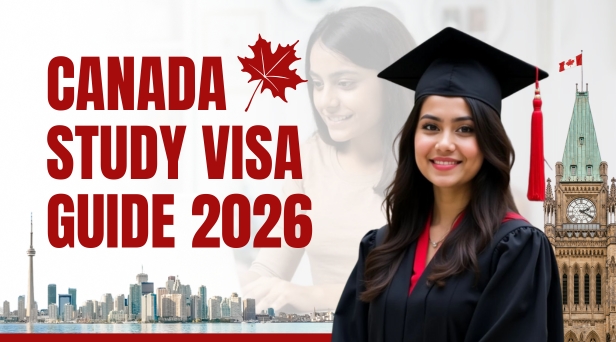When traveling abroad, it is typical for passengers to wait in many lines, mainly for visa applications and extensions. Imagine if you had the choice to forego those tiresome procedures. You could visit more nations without any restrictions, fulfill your desires for adventures and take advantage of more opened doors! You could even discover the ideal country where you wish to live for the rest of your stay.
In the Schengen Area, all of these are feasible. Let's visit the Schengen Region and learn about all the advantages that are waiting for you. This article will give a comprehensive overview of the Schengen Student Visa, its requirements, and its benefits!
A brief history of the Schengen Zone
Here is what you should know if you have no prior knowledge of the Schengen Area (also known as the Schengen Zone):
- Five member states of the European Union (EU) committed to removing internal border restrictions in 1985. The Schengen Agreement was ratified by Belgium, Germany, France, Luxembourg, and the Netherlands, creating the Schengen Area.
- Border controls between the countries were essentially eliminated in 1995 when these states resigned to the accord five years later.
- The Schengen Agreement, so named in honor of the hamlet in Luxembourg where its borders intersect those of Germany and France, established the freedom of movement for citizens of EU member states as well as Schengen-country nationals.
- The Schengen Area, which now consists of 26 Schengen nations, receives around 1.25 billion visits annually from people in Europe alone.
- Bulgaria, Romania, and Croatia could now become part of the Schengen area after voting to be held in December after a long wait!
What is a Schengen visa?
The Schengen Visa, which covers 26 nations, gives you unrestricted access to the Schengen region without going through any border checks. You are permitted to stay on the soil of the Schengen States for up to 90 days for leisure or business.
The majority of the European Union's member states are included in the Schengen region, which is a passport-free zone. If you want to stay in one of the Schengen nations for more than 90 days to live, work, or study, you must also apply for a national visa for that nation in addition to the Schengen Tourist Visa.
Schengen student visa
The Student Schengen Visa is essentially a Temporary Study Permit for Europe. Thus, students with a student visa for Europe are permitted to stay in Schengen Zone nations for a maximum of three months. You will need to submit an application for a long-stay study visa for the nation in question if the course you are pursuing is longer than six months.
Types of Schengen student visas
Schengen Visa Type A
Citizens of non-Schengen nations are permitted to transit through or wait for their connecting aircraft in the international terminal of an airport in a Schengen nation with a type A visa. It is required of anybody making a crossing from one non-Schengen nation to another and who needs to change planes in a Schengen nation's airport. A type A visa holder is not permitted entry into the aforementioned Schengen nation.
Schengen Visa Type B
The type "C" visa with the conditional "transit" has taken the place of the type "B" visa for trips lasting less than five days.
Schengen Visa Type C
The most frequent Schengen visa is Type C, sometimes referred to as the Short-Stay Schengen Visa. The student is allowed to travel unrestrictedly throughout the Schengen area for up to 90 days during a 180-day term with this educational visa. Checking the Schengen study visa conditions at your university and the country will be helpful for you since certain nations need the Type C Schengen Visa.
Depending on how frequently you want to travel to a specific member nation, Type C is further categorized into three sub-categories.
-
- Single entry visa: One entry per bearer is permitted into each Schengen Zone member state. Even if the visa hasn't expired when the person departs, it is revoked.
-
- Double entry visa: A single re-entry is allowed with this visa into the specific member state. The visa is null and worthless if the holder departs the nation a second time.
-
- Multiple entry visa: The multiple-entry visa's name says it all; it entitles the bearer to unlimited travel inside the Schengen Area for up to 90 days within a 180-day period.
Schengen Visa Type D
The national long-stay visa is essentially the Type D Student Schengen Visa. It is intended exclusively for those who have valid visas and want to stay in a Schengen nation for up to a year. However, throughout 180 days, the student is permitted to visit other members of the club for no more than 90 days.
Benefits of Schengen visa for students
Because of the additional advantages of the Schengen visa, the majority of students select Europe as their study abroad location. If you obtain a visa for any nation, you are only permitted to enter that nation; however, a Schengen visa allows you entry into all 26 Schengen nations, including Austria, Denmark, Estonia, Belgium, the Czech Republic, Finland, France, Germany, Greece, Hungary, Iceland, Italy, Latvia, Liechtenstein, Lithuania, Luxembourg, Malta, the Netherlands, Norway, Poland, Portugal, Slovakia, Slovenia, Spain, Sweden, and Switzerland.
As a student in one of these nations, you will be granted permission to travel or work there after your studies are done. Students will benefit from having greater opportunities to acquire employment and live more enjoyable lives as a result.
Freedom of mobility
This visa offers students the flexibility to travel throughout any Schengen member state of Europe easily for any internship- or educational-related employment. Your Schengen visa permits you to enter without a passport and a stay of up to 90 days, so you may move freely between Austria and Germany without obtaining a new one.
More choices for settling down
The decision to finish their education is the main worry that motivates people. Once a student has been to one nation and found employment there, it is much simpler to obtain a work visa in a civilized nation, expanding one's chances of obtaining permanent residency there.
Exposure opportunities
Yes, it is true that "more is always better" and that seeing more places will provide you with better exposure and open up more options. Understanding other cultures and individuals can help you become a better person overall and provide extra abilities to help you adapt to varied problems in your work.
Fun & recreation
Students like traveling, thus one should surely take advantage of possessing a Schengen visa. Because of its exquisite architecture and technological advancements, Europe is a paradise to visit. There is nothing more thrilling than taking in other cultures and situations. The European nations are well-connected to one another and have convenient transportation options, making travel there affordable.
Significant global networking
Last but not least, moving around and visiting new nations can undoubtedly expand your network in the global market. Such connections are usually beneficial for immigration and subsequent permanent residency procedures.
This is how international students can benefit from Schengen Visas and make their time studying in Europe more enjoyable and educational. These advantages not only give students more free time but also teach them how to comprehend the various strategies used in the global community and how to deal with them effectively.
Visa requirements for Schengen student visa
There are a lot of requirements for this particular visa, however, the below-mentioned are the mandatory requisites:
- Two applications for visas: Complete, with truthful and accurate responses. Print the form, then sign it at the bottom.
- Two passport-sized photos: in accordance with the guidelines for Schengen visa photos, taken within the past three months.
- Valid passport issued during the previous ten years, valid for at least three months after the scheduled journey's conclusion.
- A copy of the biometric info on your passport.
- Previous passports: tied with a rubber band. Not to be stapled!
- Residency proof: a document of some kind provided by the nation you are applying from as proof that you are a resident or citizen of that nation.
- Booking or scheduling for round-trip travel. stating the times and flight numbers for entering and leaving the Schengen region. Learn more about making a flight reservation for an EU visa application here.
- Travel health coverage: a statement from your European health insurer attesting to the fact that you are covered for the duration of your whole stay in the Schengen region and have €30,000 in coverage for unexpected medical expenses.
- Accommodation proof: Evidence of the accommodations you'll be using while you're in the Schengen area. One of the following examples might apply here:
- Contract for a dorm: signed by you and a representative of a dorm in the nation where you will be staying.
- Contract for Rent: a written agreement outlining the address and other specifics of the building and landlord with a landowner in this Schengen state.
- The invitation letter: a letter stating that you are welcome to stay in their house for the duration of your visit from a citizen of the nation you are requesting to enter.
- Acceptance letter to a university, college, or school in the EU. A current, official, and signed document indicating your name, your study kind, your study duration, your participation in a European program, if appropriate, and your weekly hourly rate of study.
- Academic credentials. Diploma, academic records, application for equivalence attestation, or decision or dispatch of equivalence
- Evidence of financial capacity: documents proving one's ability to live and support oneself financially when traveling within the Schengen area. There are several possibilities for this:
- Scholarship. Original proof of a least 631 euro per month scholarship.
- Financial statement. displaying your three-month rolling bank balance
- Sponsorship.
- A receipt for the payment of the visa fee.
How to Apply for a Schengen Visa as a Student
To successfully submit your application for a student Schengen visa, complete these steps:
- Verify whether you require a student Schengen visa.
- Determine the application locations.
- The ideal time to submit your visa application should be determined.
- The earliest is three months before your planned departure for Schengen while 15 days before your travel is the latest.
- To give the embassy ample time to complete your visa, it is strongly advised that you apply around 4 weeks before your scheduled departure.
- Complete the short-stay visa application form.
- Assemble the paperwork needed for a student Schengen visa.
- Schedule a meeting.
- Take part in the interview.
- Fee payment of the student visa.
- Wait for the response.
A student Schengen visa may take up to 15 calendar days to complete legally. You could get a response in some circumstances even sooner. The time frame may, however, be extended from 30 to 60 days in exceptional circumstances.












